1. Introduction: A Nation at a Crossroads
The chilling winds of geopolitical tension howl across the globe, from the battlefields of Eastern Europe, where sovereignty is brutally contested, to the trade skirmishes in the Pacific that threaten global prosperity. Nations, draped in the flags of sovereignty, flex their muscles – forging alliances, amassing armaments, and fiercely guarding their borders and interests. Yet, within the borders of Canada, a different narrative occasionally surfaces, a whisper of a world beyond nations, a gentle suggestion of a “post-national” future.
This vision, with its alluring promise of inter-connectedness and a shared human diversity woven without the rigid lines of borders, resonates with a deep yearning for unity. It speaks to a future where old divisions dissolve, and common ground is cultivated. But as Russian tanks rolled into Ukraine, a stark reminder of the enduring power of national ambition, Canadians must ask: is this aspiration, noble as it may be, a beacon guiding us towards a brighter tomorrow, or a mirage shimmering on the horizon of a far more complex and, at times, dangerous world? The seductive allure of a borderless world risks blinding us to the enduring realities of power, ambition, and the steadfast resilience of the nation-state on the global stage.
In this era of resurgent nationalism, resurgent hyper militarism and intensifying global competition, intensifying adversarial hostile takeover attempts from corporate alliances, political alliances or military alliances, a crucial question must be asked of ourselves, as Canadians: Are we, in our earnest pursuit of a “post-national” ideal, inadvertently dismantling the very foundations that have historically ensured our prosperity, our security, and our unique place in the world? Are we truly understanding the global landscape, or is the current discourse surrounding Canada’s identity a perilous misinterpretation, leaving us strategically vulnerable in a world that operates by very different rules?
This essay contends that while the principles of globalism and inclusivity hold undeniable merit, Canada’s potential embrace of a “post-national” identity, especially given its existing vulnerabilities and the extreme commitment to nationalism by other powerful states and 194 nations around the world, presents a significant and growing risk to people that might not have a nation, Canadians. It is a path that threatens to leave Canada exposed to manipulation, economic exploitation, hostile takeover of people, government and business, and ultimately, the erosion of all sovereignty and control over the vast lands, resources and energy supplies. The dream of a world beyond nations, however appealing in the movies of Science Fiction, cannot come at the cost of our public safety and national security and the well-being of Canadians.
2. The Unwavering Reality of the Nation-State: A Hard Look at the Global Stage
To speak of a “post-national” era is to fundamentally misunderstand the driving forces shaping our world today. Across the continents, the nation-state remains not a relic of the past, but a vibrant and assertive actor. For Canada, a nation built on the very principles of sovereignty and self-determination, ignoring this reality is akin to navigating a busy highway with our eyes closed. Far from fading into obsolescence, nationalism is experiencing a powerful resurgence, a testament to its enduring capacity to mobilize populations, define identities, and ultimately, dictate the course of international affairs.
3. The Resurgence of Nationalism: A Wake-Up Call for Canada
Consider the eternal, deep and profoundly strong ambition of China, channelling its national energy, in united force, akin to a one corporation entity of people and industry, into the monumental Belt and Road Initiative – a strategic undertaking designed to expand its economic and political influence across Asia, Africa, and Europe.
This is not a gesture of global altruism, but a calculated move to secure resources, markets, and geopolitical leverage, all firmly rooted in the advancement of China’s national interests and an upgrade to global military interests and reach, at some point down the road from this foundation and almost complete global territorial integration in trade and industry. For Canada, this means increased competition for resources and influence on the global stage.
Similarly, Russia’s actions in Ukraine, a brutal assertion of its perceived sphere of influence, starkly illustrate the willingness of nation-states to employ military force to defend what they deem their vital national security concerns.
This underscores a fundamental truth: in a world where borders are defended by force, can Canada afford to be naive about its own?
Even within the established framework of the European Union, a project often cited as a model of post-national cooperation, the centrifugal forces of national identity are palpable. it is not a post-national identity, but is in fact a regional supra-national identity of European, which “coexists in parallel with” and “overlays in tandem with” the “national identities of European nation states”.
We witness this in the complexities of Brexit, driven by a desire to reclaim national sovereignty and control over borders – the very issues central to national identity.
And across the Atlantic, under certain administrations, the United States has explicitly prioritized “America First” policies, engaging in trade wars that directly impacted Canadian industries and questioning multilateral agreements – a clear indication of a renewed focus on national economic dominance, sometimes at Canada’s expense.
These are not isolated incidents; they are powerful indicators of a global order firmly anchored in the principles of national interest and self-preservation, and Canada cannot afford to ignore them.
4. BRICS: The Strategic Alignment of National Interests
Further solidifying the narrative of the enduring nation-state is the ascendance of blocs like BRICS – an alliance comprising Brazil, Russia, India, China, and South Africa, with a growing list of nations eager to join and joining often.
It is crucial to recognize that BRICS is not a nascent global government or a move towards a post-national framework. Instead, it represents a strategic coalition of powerful sovereign nations, each fiercely protective of its own autonomy, coming together to advance their collective national interests.
Their shared objectives – challenging the existing global financial architecture, promoting trade amongst themselves, and seeking a multi-polar world order – are all rooted in the desire to enhance their individual national power and influence on the world stage.
BRICS serves as a potent reminder that international cooperation, in its most impactful forms, often occurs through alliances of nation-states pursuing their strategic goals in concert.
Canada, often navigating between powerful blocs, must understand this dynamic to safeguard its own interests.
5. The Persistent Reality of National Sovereignty: Limits to Global Governance
While the ideals of global governance, facilitated by international organizations like the United Nations, are laudable, their practical limitations underscore the enduring primacy of the nation-state.
The UN, despite its critical role in promoting dialogue and addressing global challenges, ultimately relies on the consent and cooperation of its member states. Its resolutions can be vetoed, its mandates can be ignored, and its peacekeeping efforts depend on the willingness of nations to contribute resources and personnel. We saw this with the recent debates over intervention in Syria and Ukraine.
The enforcement of international law, similarly, remains a complex and often selective process, fundamentally reliant on the national legal systems and the political will of individual states.
The very structure of these organizations, based on the representation of sovereign nations, reinforces the reality that ultimate authority and power remain vested within the borders of individual countries. To believe that these institutions have transcended the nation-state is to mistake the aspiration for the reality, the potential for the practical – a mistake Canada cannot afford to make.
6. The Historical Cost of Statelessness: A Shadow Over “Post-National” Dreams
The seductive whispers of a world without borders often conjure a utopian vision of unity. But before succumbing to such alluring fantasies, we must confront the stark realities etched in the historical record – the harrowing chronicles of peoples un-moored from the protection of a nation, their vulnerability a chilling testament to the perils of statelessness. This is not an abstract philosophical debate; it is a visceral reckoning with the suffering endured by those who lacked the fundamental security of national belonging. As Canada contemplates a “post-national” future, the echoes of their struggles offer indispensable, albeit grim, lessons.
-
The Jewish Diaspora (Pre-1948): Centuries of Vulnerability Forged in the Crucible of Statelessness: For two millennia, the Jewish people navigated the world without a sovereign homeland, their diaspora a testament to resilience, yet also a gaping wound of vulnerability. They were perpetual outsiders, their welcome often contingent, their rights precarious. This absence of a sovereign nation rendered them agonizingly susceptible to the whims of host societies. From medieval pogroms to the Dreyfus Affair, they were scapegoated, demonized, and persecuted, their pleas for intervention falling on deaf ears. This tragic trajectory culminated in the Holocaust, a state-sponsored genocide fuelled by centuries of anti-Semitism against a people stripped of the most basic national safeguards. The crematoria of Europe stand as horrific monuments to the lethal cost of statelessness.
-
The Roma (Gypsies): A Nomadic Existence Devoid of National Sanctuary: The vibrant culture of the Roma, woven through the tapestry of Europe for centuries, is inextricably linked to a history of statelessness. Their nomadic traditions, while enriching the continent’s cultural landscape, simultaneously exposed them to relentless marginalization and discrimination. Denied the legal protections afforded to citizens, they were branded as vagrants, subjected to forced assimilation, and denied fundamental rights. The Nazi regime’s Porajmos, the Romani Holocaust, stands as a chilling indictment of how statelessness can become a justification for genocide, their lack of national identity a fatal vulnerability.
-
Armenians in the Ottoman Empire: A Homeland Lost, a Genocide Unleashed: For millennia, Armenians thrived in their ancestral lands, yet the rising tide of Ottoman nationalism in the early 20th century cast a dark shadow over their future. Lacking an independent nation to defend them, they became agonizingly vulnerable. The Armenian Genocide, a systematic campaign of extermination, stands as a brutal example of how the absence of national sovereignty can invite unimaginable atrocities. Without a government to advocate for their survival, an estimated 1.5 million Armenians perished, a stark reminder of the price paid when a people are stripped of their national shield.
-
The Kurds: A Nation Divided, Their Aspirations Crushed: The Kurdish people, a distinct cultural group inhabiting a region straddling multiple national borders, embody the painful consequences of statelessness in the modern era. Their aspirations for self-determination have been consistently thwarted, their homeland fragmented by the arbitrary lines drawn by distant powers. This lack of a unified nation has rendered them vulnerable to repression, cultural suppression, and the devastating consequences of regional conflicts. The Kurds’ ongoing struggle underscores the precarious existence of a people denied the fundamental right to national sovereignty.
-
Indigenous Peoples Globally: Dispossession and Erasure in the Shadow of Colonial Nations: While not strictly “stateless” in the diasporic sense, the history of Indigenous peoples globally reveals another brutal facet of the nation-state’s impact. The expansion of colonial powers, fuelled by nationalist ideologies, systematically disregarded the pre-existing sovereignty of Indigenous nations. Treaties were broken, lands were stolen, and cultures were deliberately dismantled. This forced subjugation and the denial of their inherent right to self-determination illustrate how the imposition of the nation-state framework can lead to the destruction of existing, independent societal structures and the profound suffering of those whose sovereignty is ignored.
6.2. Analysis and Connection to Canada
These historical narratives, etched in suffering and loss, serve as a potent counterpoint to the seductive allure of 2015 to 2024 post-nationalism.
They underscore a fundamental truth: the nation-state, despite its imperfections, has historically served as a vital, often indispensable, framework for the security and protection of its people (human rights, the social contract, public safety and national security architecture for the people).
To casually dismiss its importance, to advocate for its deliberate weakening, or full replacement to international access level to all nations, unbounded and unconstrained, is is to ignore the hard-won lessons of history and to potentially court similar vulnerabilities.
Consider, for instance, how the historical vulnerability of stateless groups to economic exploitation mirrors Canada’s increasing reliance on specific trading partners, potentially leaving it susceptible to coercion.
Just as stateless populations lacked recourse when their rights were violated, a weakened sense of national sovereignty could hinder Canada’s ability to assert its interests on the global stage or simply defend itself when other states move in to fill in the void.
The lack of a strong national defense, akin to a stateless people’s inability to protect their own territory, leaves Canada reliant on the goodwill of others, a precarious position history has repeatedly shown to be dangerous.
While Canada rightly celebrates its multiculturalism, the enduring experiences of stateless peoples serve as a stark reminder that a shared national framework, a collective identity, and the capacity for self-defense remain crucial for safeguarding the well-being and security of all who call this land home.
6.3 Conclusion
The dream of a world beyond nations may resonate with noble intentions, but the historical cost of statelessness casts a long and sobering shadow.
‘Should Canadians trust their mindset on this issue, when it can so easily be manipulated and fully conditioned by digital systems network based suggestion systems and AI technologies, or should they trust the data of the historical record and current geopolitical nation state focus realities.’
The tales of the Jewish diaspora, the Roma, the Armenians, the Kurds, and countless Indigenous communities are not relics of a distant past; they are urgent warnings against dismantling the very structure that has, however imperfectly, offered a measure of security and belonging to humanity.
These are not abstract concepts; they are visceral reminders of the consequences when a people lack the ability to defend themselves, to advocate for their interests, and to control their own territory and destiny.
As Canada charts its future, these historical echoes demand careful consideration, reminding us that the pursuit of a “post-national” ideal must not come at the expense of the fundamental protections afforded by a strong and sovereign nation.
To forget the lessons of history, to ignore the enduring vulnerability of the stateless, is to gamble with the very foundations of our collective security and well-being.
7. Canada’s Growing Vulnerabilities: Are We Prepared for a Nationalist World?
Against the backdrop of this resurgent nationalism and the pursuit of national interest by global powers, Canada stands at a critical juncture. While the world around us reinforces the importance of robust national capabilities, a closer examination reveals troubling cracks in Canada’s own foundations – vulnerabilities that become acutely concerning in an era of heightened geopolitical competition. These are not merely abstract concerns; they are tangible weaknesses that could be exploited, jeopardizing Canada’s security and prosperity in the very near term.
8. The Alarming Erosion of Canada’s National Defense Capabilities
Perhaps the most glaring vulnerability lies in the gradual erosion of Canada’s national defense capabilities. While other nations are investing heavily in modernizing their armed forces – consider Australia’s recent investments in nuclear submarines or Germany’s increased defense spending – Canada’s military has faced decades of under-funding, shrinking of personnel counts to smaller levels than late 1980s, when population was much smaller, significantly dwindling troop numbers, outdated (like the aging CF-18 fighter jets), de-activated equipment, and a reliance on allies that borders on dependency (or sovereignty loss).
To put it bluntly, in a world where military strength remains a crucial determinant of influence and security, Canada’s capacity to independently defend its vast territory, including the increasingly strategic Arctic, and protect its interests is demonstrably limited.
With a relatively small active military compared to its geographic size and economic standing, and with key equipment nearing obsolescence, Canada risks being unable to effectively project power, deter aggression, or even adequately respond to threats within its own borders.
This isn’t a call for aggressive militarism, but a sober assessment of the fundamental requirements for national sovereignty in a world where threats are real and evolving, and where our allies may have their own priorities.
9. Economic Dependencies: A Potential Point of Leverage Against Canada
Beyond military considerations, Canada’s economic landscape presents its own set of vulnerabilities. The increasing reliance on China as a major trading partner, while offering economic opportunities, also creates a potential point of leverage for Beijing. We saw this clearly with China’s restrictions on Canadian canola and beef following the arrest of a Huawei executive.
Economic coercion, the use of trade and investment as tools of political pressure, is a well-documented tactic employed by powerful nations.
Similarly, the significant control wielded by US corporations over Canada’s crucial technology sector raises questions about data security, intellectual property, and the extent to which Canadian interests are prioritized. The ongoing debate surrounding data privacy and the influence of Big Tech highlights this concern.
This economic interdependence, while seemingly benign on the surface, carries the risk of foreign influence subtly shaping Canadian policy and limiting Canada’s autonomy in critical sectors. A nation that does not control its economic levers risks having its future determined by others.
10. The Shadow of Foreign Interference: Undermining Canadian Democracy
Adding another layer of complexity are the persistent allegations of foreign interference in Canadian politics. Concerns raised by security experts and intelligence agencies, as highlighted in recent CSIS reports, regarding potential attempts by foreign governments to influence elections, compromise politicians (as has been alleged with certain MPs), and manipulate public discourse cannot be dismissed lightly.
The specific allegations of certain Members of Parliament being potentially compromised, while requiring careful investigation and due process, highlight the potential vulnerability of Canada’s democratic institutions to external subversion.
Furthermore, the acknowledged influence of global organizations like the World Economic Forum on policy discussions, while perhaps well-intentioned by some, raises questions about the locus of decision-making and the extent to which Canadian policies are truly driven by Canadian needs and priorities.
These are not accusations made lightly, but serious concerns that strike at the heart of Canada’s sovereignty and its ability to chart its own course.
11. The Disarming of Internal Security: A Risk to Canadian Safety
Finally, the trend towards the “disarming” of internal security structures warrants serious consideration. Discussions around de-funding the police, while often stemming from legitimate concerns about police conduct and social justice, must also consider the potential consequences for public safety and the ability to maintain order. Recent increases in urban crime in some Canadian cities raise questions about this balance.
Similarly, weakening border security measures, whether through reduced funding or relaxed enforcement, creates opportunities for illicit activities, the flow of illegal goods, and the entry of individuals who may pose a threat.
Canada’s long and porous border makes this a particularly salient concern. A nation that cannot effectively control its borders and ensure internal security is inherently vulnerable to both domestic and external threats. These are not simply budgetary decisions; they are choices that directly impact the safety and security of Canadians.
12. The Siren Song of “Post-Nationalism”: A Critical Examination
It is important to acknowledge that the impetus behind the “post-national” narrative is not entirely without merit. The desire for a more interconnected world, one that celebrates diversity and transcends outdated divisions, speaks to a noble aspiration for greater human unity and cooperation. The intention, at its core, is to foster inclusivity and move beyond the narrow confines of traditional nationalism, potentially leading to a more peaceful and collaborative global environment.
13. When Good Intentions Meet Harsh Realities
However, good intentions alone do not guarantee positive outcomes. The practical application of a “post-national” framework, particularly in a world that stubbornly adheres to the principles of national interest, carries significant unintended consequences. To pursue this ideal without first ensuring robust national defenses and a strong sense of shared national purpose is akin to dismantling the walls of a house before securing its foundations against the storm.
In the absence of a strong national identity, a shared understanding of values, and the capacity to protect its borders and interests, a “post-national” Canada risks becoming a vacuum – a space where external forces can exert undue influence, where economic exploitation can take root, and where the very fabric of Canadian society can be subtly reshaped by those who do not necessarily share its values or prioritize its well-being.
The ideal of a borderless world, while conceptually appealing, becomes a dangerous vulnerability when other nations continue to operate within sharply defined borders and with a clear focus on their own national advantage.
Proponents might argue this fosters global cooperation and economic growth, but without safeguards, Canada risks being taken advantage of.
14. Who Stands to Gain from a Vulnerable Canada?
This raises a critical question: who truly benefits from a “post-national” Canada?
It is not Canada that creates the post-national Canada. It is Prime Minister Justin Trudeau who is the prominent figure associated with the rhetoric of a post-national Canada, and has acted as foundation for this narrative.
In a 2015 interview with The New York Times Magazine, when asked about Canada’s identity, Trudeau famously said:
“There is no core identity, no mainstream in Canada. There are shared values – openness, respect, compassion – but there is no homogenous culture to which people must integrate. “
This statement is widely considered to be a key articulation of his vision for a post-national Canada. He and his supporters often frame this concept as celebrating Canada’s diversity and multiculturalism, arguing that shared values are more important than a singular national identity.
However, this rhetoric has also been a source of significant debate and criticism, as our essay effectively outlines. Critics, including us, argue that it weakens national cohesion, overlooks the importance of shared history and culture, and can leave Canada vulnerable in a world where traditional nation-states remain dominant actors.
Prime Minister Justin Trudeau is the prominent figure associated with the rhetoric of a post-national Canada.
While the rhetoric often emphasizes global citizenship and shared humanity, it is worth considering which specific actors or entities might gain from a weakened sense of Canadian national identity and a less defended territory.
As previously discussed, powerful corporations, both domestic and foreign, could find it easier to operate with fewer national regulations and with less resistance to their pursuit of profit.
Foreign governments, unburdened by a strong and unified Canadian national will, might find avenues to exert political and economic influence more readily.
The erosion of national borders and a decline in national cohesion could inadvertently create opportunities for those who seek to exploit Canada’s resources or manipulate its political landscape.
This is not to suggest a conspiracy, but rather to encourage a critical analysis of the potential power dynamics at play when a nation consciously deemphasizes its own national identity, public safety and national defenses.
15. The Looming Threat of Exploitation in a Resource-Scarce World
In the fiercely competitive arena of global politics, where nations are constantly vying for resources, influence, and strategic advantage, a “post-national” Canada risks being perceived as ripe for exploitation.
Imagine a scenario where global resources become increasingly scarce – a very real possibility in an era of climate change and increasing demand. With current global population growth rates and rising living standards around the world, Canada could become a much needed resource for humanity.
Canada, with its vast reserves of fresh water, minerals, energy resources, and arable land, becomes an increasingly attractive target for nations facing resource scarcity.
If Canada is perceived as lacking the will or the capacity to vigorously defend these assets, the temptation for other nations to secure access, by whatever means necessary, will undoubtedly grow.
The very wealth that Canada possesses becomes a liability in the absence of a strong national framework to protect it. The dream of transcending national boundaries becomes a nightmare of vulnerability when faced with the pragmatic self-interest of other powerful actors on the world stage.
16. A Call to Re-Evaluate: Prioritizing Canada’s Future in a Nationalist World
The preceding analysis is not intended as a lament, but as a necessary wake-up call. The path towards a secure and prosperous future for Canada does not lie in a naive embrace of a “post-national” ideal of PM Trudeau that ignores the realities of the global landscape.
Instead, it requires a fundamental re-evaluation of our priorities, a conscious decision to fortify our foundations, and a commitment to a balanced approach that recognizes both the value of global engagement and the paramount importance of national strength.
17. Finding the Right Balance: National Strength as a Foundation for Global Cooperation
The choice before Canada is not a binary one between isolationism and a borderless world.
A mature and responsible approach recognizes that embracing diversity, fostering global cooperation, and contributing to the international community are not incompatible with maintaining a strong and sovereign nation. Indeed, a confident and secure Canada, with a clear sense of its own identity and interests, is better positioned to be an effective and respected partner on the global stage.
We must move beyond the false dichotomy that suggests prioritizing national interests is somehow antithetical to global cooperation. A strong Canada benefits the world, and a secure world benefits Canada.
The key lies in finding the equilibrium, where we are both proud citizens of our nation and responsible members of the global community.
18. Concrete Steps to Rebuild Canada’s National Strength
Foremost among the necessary re-evaluations is a renewed commitment to investing in Canada’s national strength.
This is not a call for aggressive militarism or unwarranted expansionism.
Rather, it is a pragmatic recognition that in a world where threats are real and evolving rapidly to incredible never before seen strength levels and danger levels in nations that could theoretically see us as adversaries; justifying the development of a capable military, robust border security, and effective internal security forces, security structures that are not optional luxuries, but essential prerequisites for national survival.
Specifically, this requires prioritizing funding for modernizing our Arctic surveillance capabilities, investing in cyber defense, and ensuring our navy has the resources to patrol our vast coastlines.
Investing in modernizing our armed forces, strengthening our surveillance capabilities, and ensuring the integrity of our borders is not a sign of hostility, but a demonstration of our commitment to protecting our citizens, our sovereignty, and our values.
It is an investment in peace through preparedness, a shield against potential aggression, and a foundation for confident engagement with the world.
19. Protecting Our Economic Sovereignty: A Strategic Imperative
Securing Canada’s future also demands a renewed focus on protecting our economic sovereignty. This requires implementing policies that ensure Canada retains control over its key industries, particularly those related to natural resources, energy, and technology.
This means strategically diversifying our trade relationships to reduce reliance on any single nation and fostering domestic innovation through targeted investments and support for Canadian businesses.
Trade relationships must be carefully evaluated to ensure they are mutually beneficial and do not create undue dependencies that could be exploited. We must foster domestic innovation, support Canadian businesses, and strategically manage foreign investment to ensure it aligns with Canadian interests.
Protecting our economic independence is not about protectionism, but about ensuring that Canada’s prosperity is determined by Canadians, and that our economic levers cannot be manipulated by external actors.
20. Rekindling a Shared National Purpose: The Foundation of a Strong Canada
Finally, securing Canada’s future requires rekindling a shared sense of national purpose. This involves fostering a deeper understanding and appreciation of Canadian history, values, and culture. It means promoting civic engagement, encouraging dialogue, and building bridges across different communities within Canada.
This is not about exclusion or a narrow definition of what it means to be Canadian, but about creating a unifying vision – one that embraces our diversity while being anchored in shared values of democracy, freedom, duty, and the rule of law – that all Canadians can embrace. A strong nation is built not just on public safety, physical defenses, national security and economic strength, but on the shared identity and collective will of its people.
21. Conclusion: The Choice Before Canadians
In conclusion, the allure of a “post-national” future, while appealing in its idealism, presents a significant and undeniable risk to Canada’s well-being in a world that continues to operate under the established rules of national interest and assertive sovereignty.
To embrace this vision without addressing the fundamental vulnerabilities in our national defenses, our economic structures, and our internal security is not a step towards a utopian future, but a gamble with the veryfoundations of our nation.
The time for complacency is over. The global landscape is shifting rapidly, and the price of inaction is potentially catastrophic. It is imperative that Canadians engage in a frank and honest national conversation about the direction our country is heading.
We must demand a critical re-evaluation of policies that have weakened our national defenses and exposed us to potential exploitation. We must urge our leaders to prioritize the security and prosperity of Canada and its citizens, not as an act of aggression, but as a fundamental responsibility of governance. The future of our nation depends on our willingness to confront these challenges head-on and to make the necessary course corrections before it is too late.
Let us not be lulled into a false sense of security by the seductive whispers of a world that does not yet exist. The enduring power of the nation-state is not a relic of the past, but a defining characteristic of the present and the foreseeable future. To ignore this reality is to invite vulnerability, to court exploitation, and to risk the irreversible erosion of our sovereignty and our capacity to shape our own destiny.
The choice is ours, Canadians: will we stand idly by as the foundations of our nation are weakened, or will we rise to the challenge, reclaim our strength, and secure a prosperous and sovereign future for Canada in a world that demands nothing less?
22. References
22.1. Foundational Texts on Nationalism, Sovereignty, and International Relations:
-
Anderson, Benedict. Imagined Communities: Reflections on the Origin and Spread of Nationalism. Revised Edition. London: Verso, 2006. This is a classic text on the origins and nature of nationalism, arguing that nations are socially constructed “imagined communities.”
-
Gellner, Ernest. Nations and Nationalism. Ithaca, NY: Cornell University Press, 1983.Another foundational work that explores the relationship between nationalism, industrialization, and the modern state.
-
Hobbes, Thomas. Leviathan. Edited by Richard Tuck. Cambridge: Cambridge University Press, 1996. A foundational text in political philosophy that argues for the necessity of a strong sovereign power to maintain order and security. Relevant for its discussion of the social contract and the state’s role in protecting its citizens.
-
Hobsbawm, Eric J. Nations and Nationalism Since 1780:Programme, Myth, Reality. Cambridge: Cambridge University Press, 1990.Examines the historical development of nationalism, emphasizing its role as a modern phenomenon.
-
Morgenthau, Hans J. Politics Among Nations: The Struggle for Power and Peace. New York: McGraw-Hill, 2006. A key text in the realist school of international relations, emphasizing the importance of national interest and power in shaping state behaviour.
-
Smith, Anthony D. The Ethnic Origins of Nations. Oxford: Blackwell, 1986.Explores the ethnic roots of national identity and the role of shared culture, language, and history in nation-building.
-
Waltz, Kenneth N. Theory of International Politics. New York: McGraw-Hill, 1979.A seminal work in neorealism, arguing that the anarchic structure of the international system compels states to prioritize their own security and engage in self-help.
22.2. Contemporary Analyses of Geopolitics, Nationalism, and Global Power Dynamics:
-
Allison, Graham. Destined for War: Can America and China Escape Thucydides’s Trap? Boston: Houghton Mifflin Harcourt, 2017. Explores the rising power of China and the potential for conflict with the United States, highlighting the enduring relevance of great power competition.
-
Bremmer, Ian. Us vs. Them: The Failure of Globalism. New York: Portfolio, 2018. Examines the rise of populism and nationalism around the world, arguing that globalization has created winners and losers and fuelled a backlash against the established order.
-
Ikenberry, G. John. Leviathan: The Origins, Crisis, and Transformation of the American World Order. Princeton: Princeton University Press, 2011.Analyzes the rise and potential decline of the US-led international order.
-
Kagan, Robert. The Return of History and the End of Dreams. New York: Vintage, 2009. Argues that the post-Cold War era is over and that the world is returning to a state of great power competition.
-
Kaplan, Robert D. The Revenge of Geography: What the Map Tells Us About Coming Conflicts and the Battle Against Fate. New York: Random House, 2012. Emphasizes the enduring importance of geography in shaping international relations and the potential for conflict over resources and territory.
-
Leonard, Mark. Why Europe Will Run the 21st Century. New York: PublicAffairs, 2005. Argues for the continued importance and influence of the European Union as a model of regional integration and post-national cooperation. However, consider using this selectively, as your essay critiques certain aspects of the EU as well.
-
Mead, Walter Russell. God and Gold: Britain, America, and the Making of the Modern World. New York: Knopf, 2007. Provides historical context on the rise of Anglo-American power and its impact on the global order.
-
Zakaria, Fareed. The Post-American World. New York: W.W. Norton & Company, 2008. Analyzes the rise of new global powers and the implications for the United States’ role in the world.
22.3. Canada-Specific Sources on Defense, Foreign Policy, and National Identity:
-
Bercuson, David J. Significant Victories: The History of the Canadian Armed Forces, 1914-2014. Georgetown, ON: The Canadian Centre for Strategic Studies, 2014. A recent overview of Canada’s military history, valuable for understanding the evolution of its defense capabilities.
-
Bliss, Michael. Right Honourable Men: The Descent of Canadian Politics from Macdonald to Mulroney. Toronto: HarperCollins, 2004. A history of Canadian political leadership, offering insights into the evolution of Canadian identity and foreign policy.
-
Chapnick, Adam. The Middle Power Project: Canada and the Founding of the United Nations. Vancouver: UBC Press, 2005. Explores Canada’s role in the creation of the UN and its historical commitment to multilateralism.
-
Cohen, Andrew. While Canada Slept: How We Lost Our Place in the World. Toronto: McClelland & Stewart, 2003. A critique of Canada’s foreign policy, arguing that it has become complacent and lost its influence on the world stage.
-
Department of National Defence. Strong, Secure, Engaged: Canada’s Defence Policy. Ottawa: Department of National Defence, 2017. The Canadian government’s official defense policy document, outlining its strategic priorities and defense spending plans.
-
Granatstein, J.L. Who Killed Canadian History? Toronto: HarperCollins, 1998. A controversial but influential book that argues that Canadian history has been neglected and that this has weakened national identity.
-
Griffiths, Rudyard. Who We Are: A Citizen’s Manifesto. Vancouver: Douglas & McIntyre, 2009. A reflection on Canadian identity and values.
-
Hillmer, Norman, and J.L. Granatstein. Empire to Umpire: Canada and the World to the 1990s. Toronto: Copp Clark Longman, 1994. A history of Canadian foreign policy from Confederation to the 1990s.
-
Paris, Roland. At War’s End:Building Peace After Civil Conflict. Cambridge: Cambridge University Press, 2004.Relevant for its analysis of international intervention and peacebuilding, issues in which Canada has historically been involved.
-
Standing Senate Committee on National Security and Defence. Reports and Publications. The committee’s reports provide valuable insights into current security challenges facing Canada and assessments of the country’s defense capabilities. You can find these on the Senate of Canada website.
22.4. Sources on Foreign Interference, Economic Coercion, and Cybersecurity:
-
Canadian Security Intelligence Service (CSIS). Annual Public Reports. CSIS reports provide assessments of threats to Canadian security, including foreign interference, espionage, and terrorism. Available on the CSIS website.
-
Communications Security Establishment (CSE). Publications and Reports.CSE reports offer insights into cybersecurity threats and Canada’s efforts to protect its critical infrastructure. Available on the CSE website.
-
Global Affairs Canada.Reports on Economic Sanctions and Trade Policy. Relevant for understanding Canada’s approach to economic statecraft and its vulnerability to economic coercion.
-
Joske, Alex. Spies and Lies: How China’s Greatest Covert Operations Fooled the World. Melbourne: Hardie Grant Books, 2022. Offers detailed insight into China’s foreign influence operations.
-
Manthorpe, Jonathan. Claws of the Panda: Beijing’s Campaign of Influence and Intimidation in Canada. Toronto: Cormorant Books, 2019. A well-regarded book on China’s influence operations in Canada.
-
Wylie, Christopher. Mindf*ck: Cambridge Analytica and the Plot to Break America. New York: Random House, 2019. While focused on the US and UK, it provides valuable context on the use of data and social media for political manipulation, relevant to discussions of foreign interference.
22.5. Think Tank and Research Institute Reports:
-
Canadian Global Affairs Institute (CGAI).Publishes reports and analysis on Canadian foreign policy, defense, and international security issues.
-
C.D. Howe Institute. Focuses on Canadian economic and social policy, including trade, competitiveness, and innovation.
-
Macdonald-Laurier Institute. Publishes research on a range of public policy issues, including national security, defense, and foreign affairs.
-
The RAND Corporation (US-based but relevant). Conducts research on a wide range of defense and security issues, including military modernization, cybersecurity, and emerging technologies.
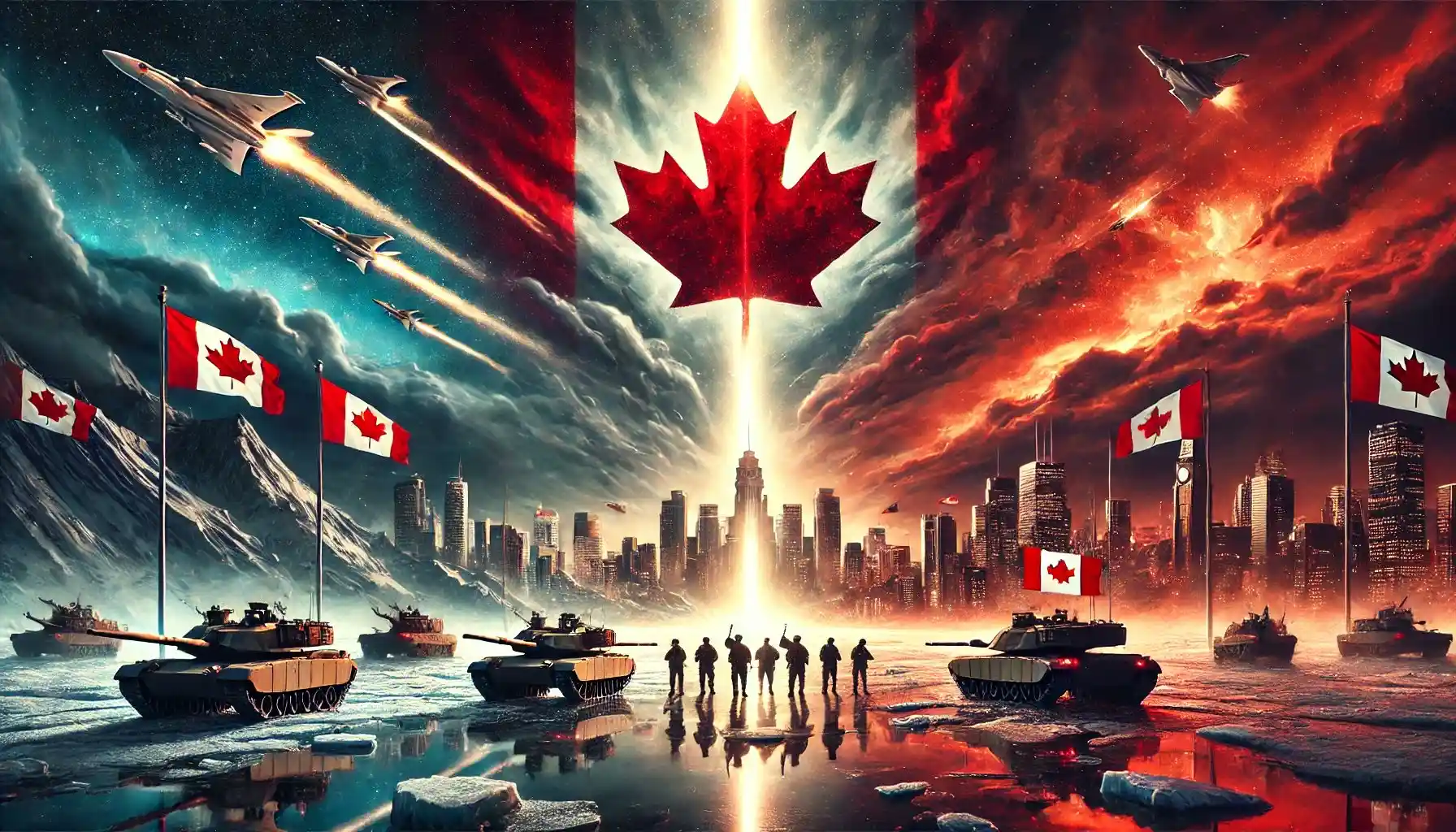
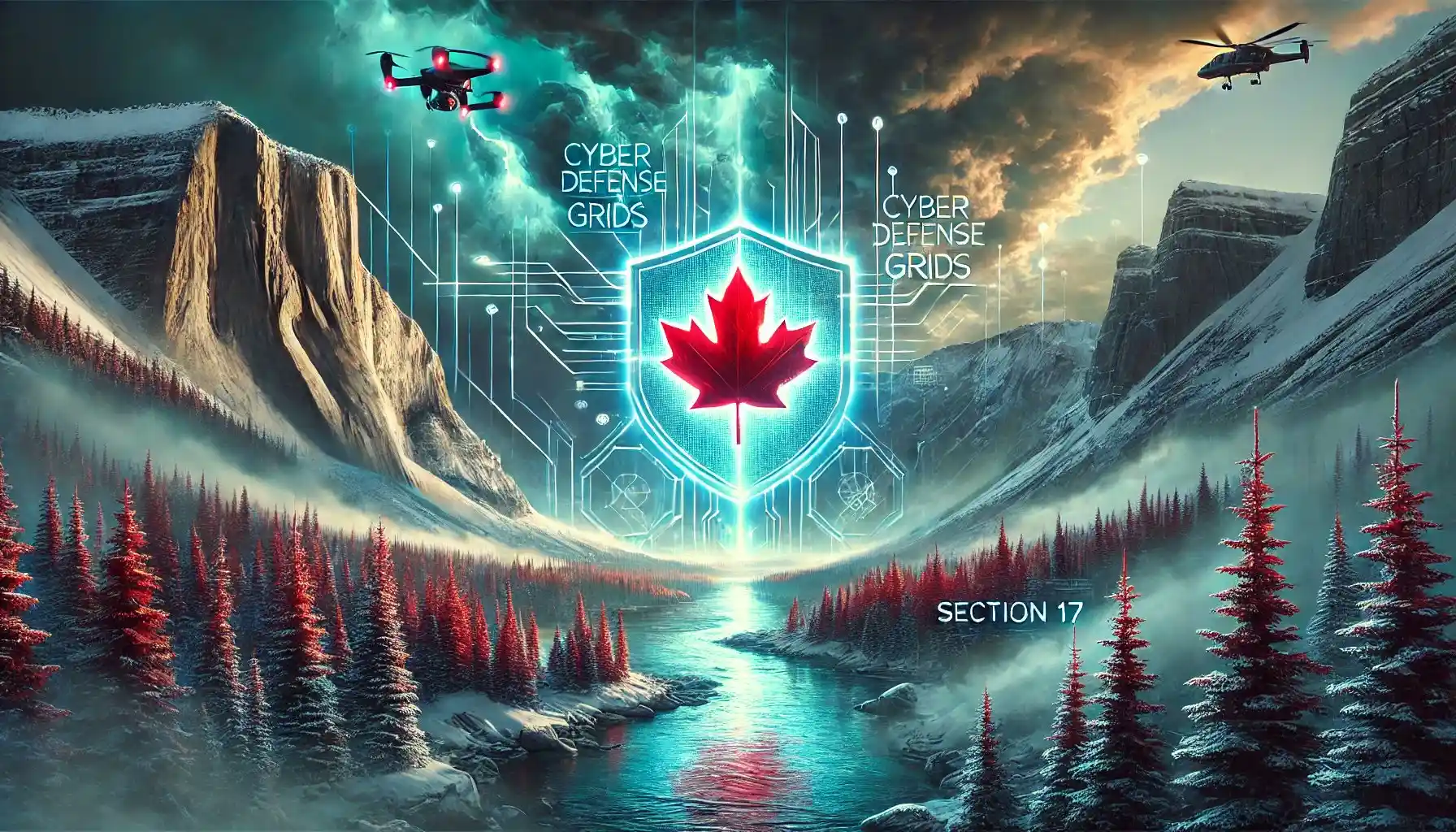
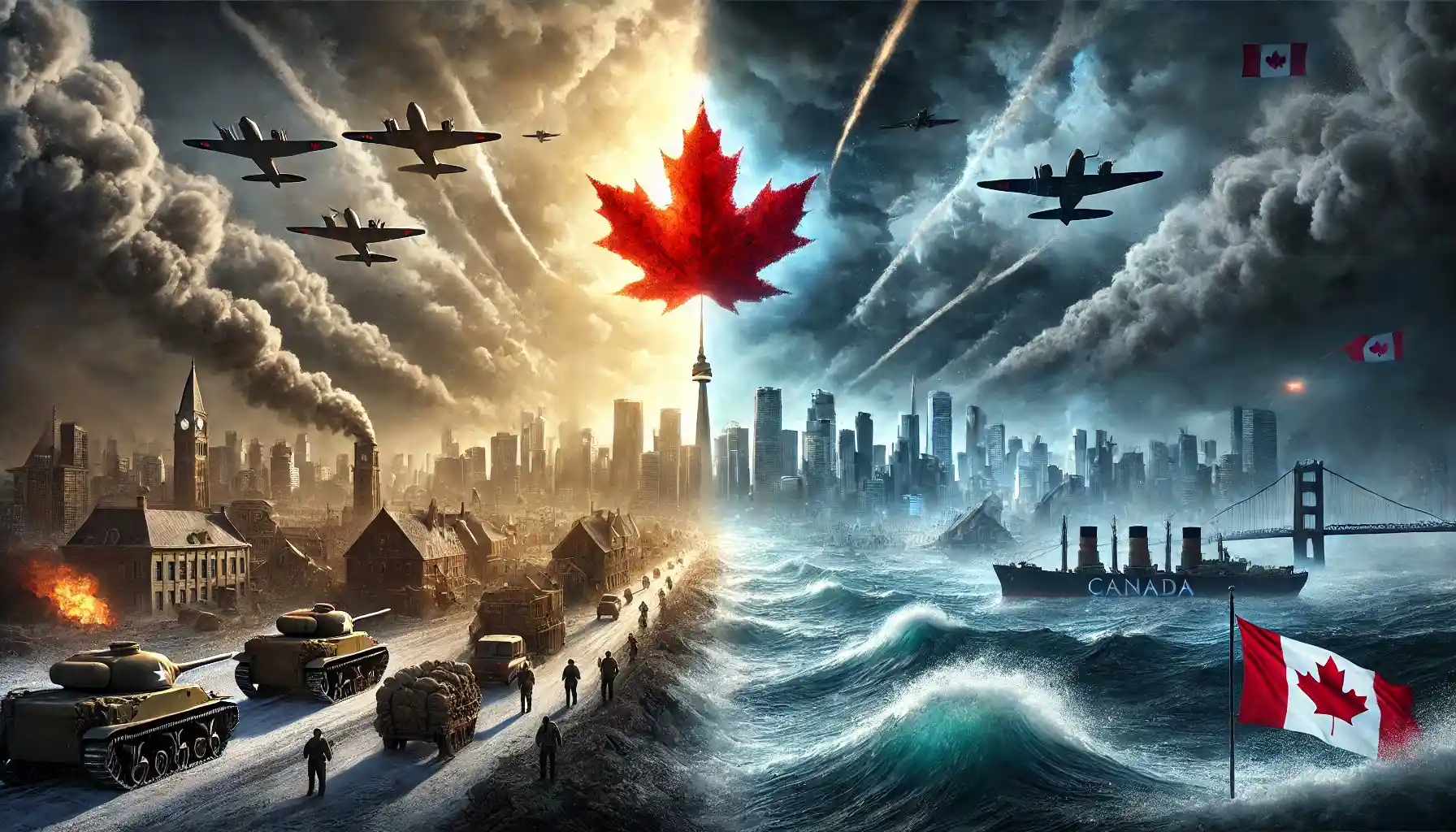

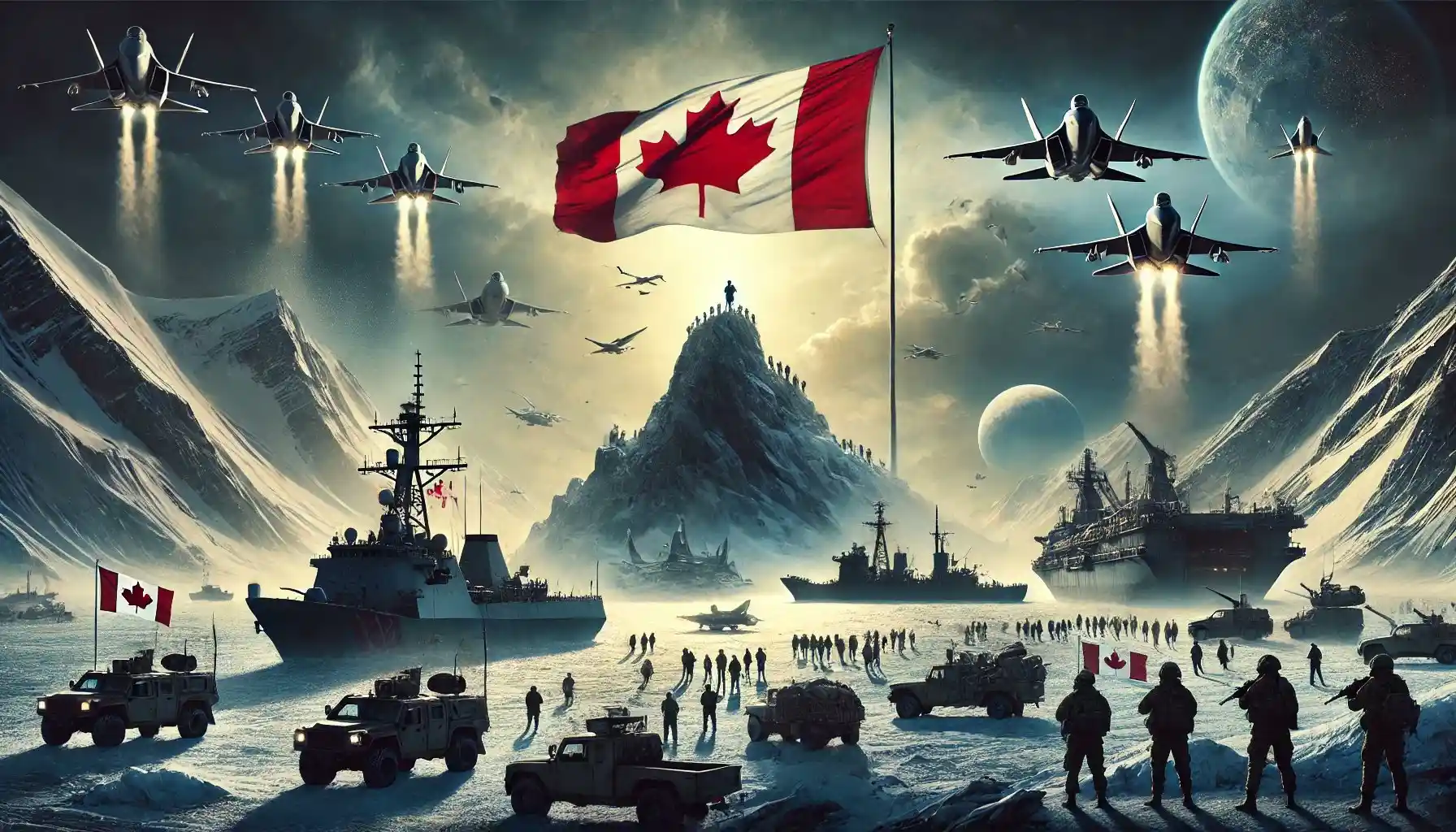
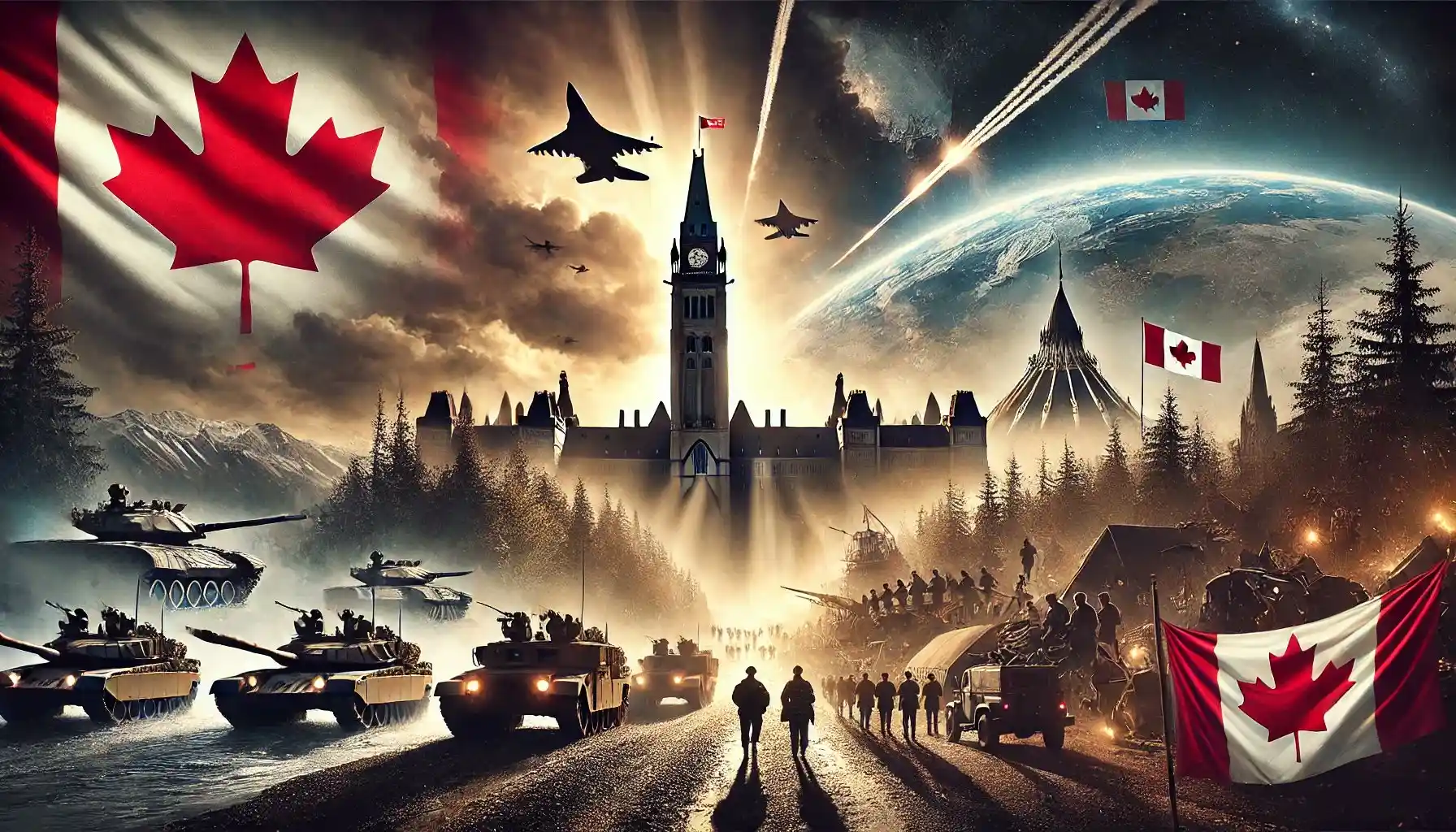
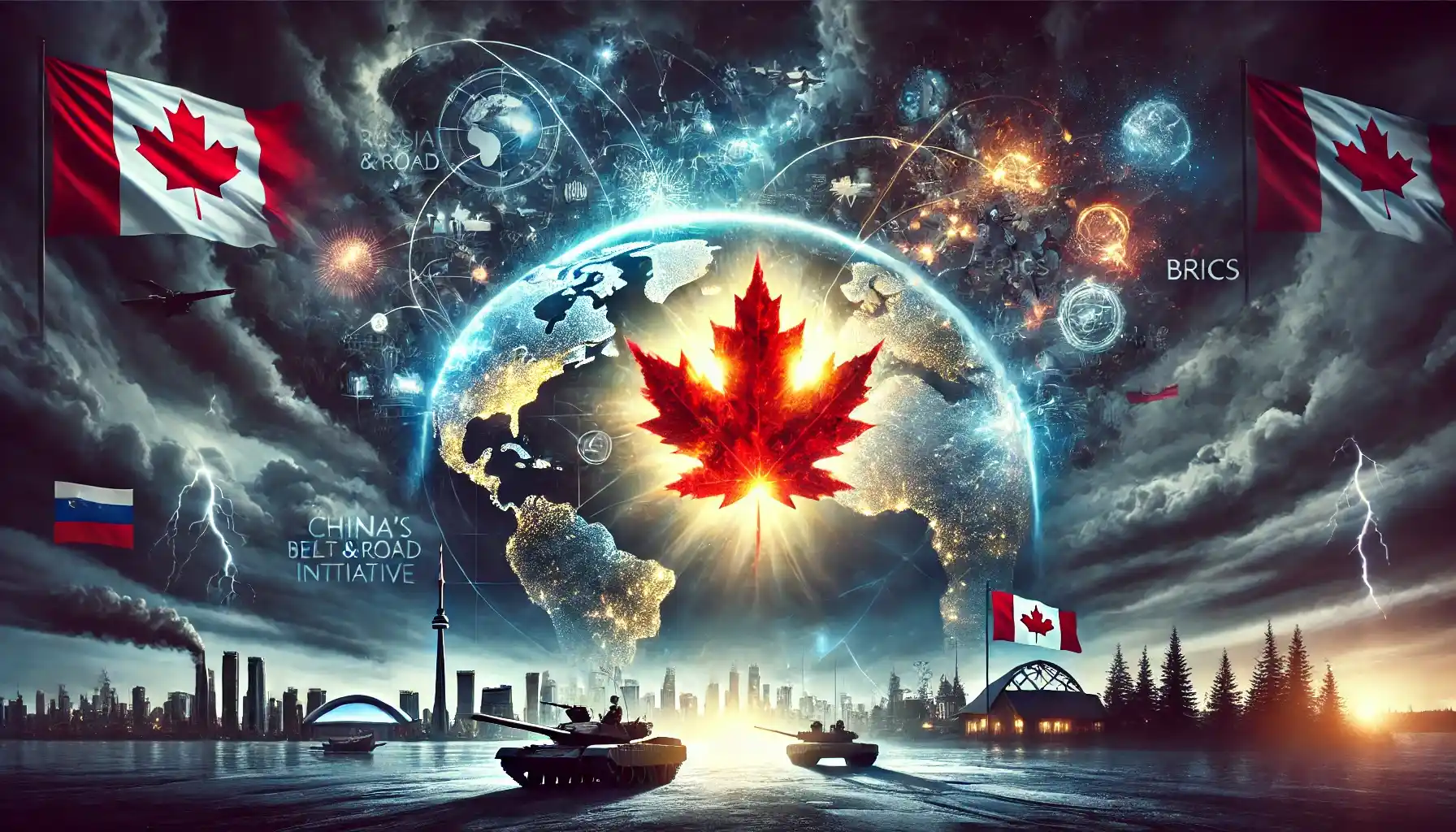
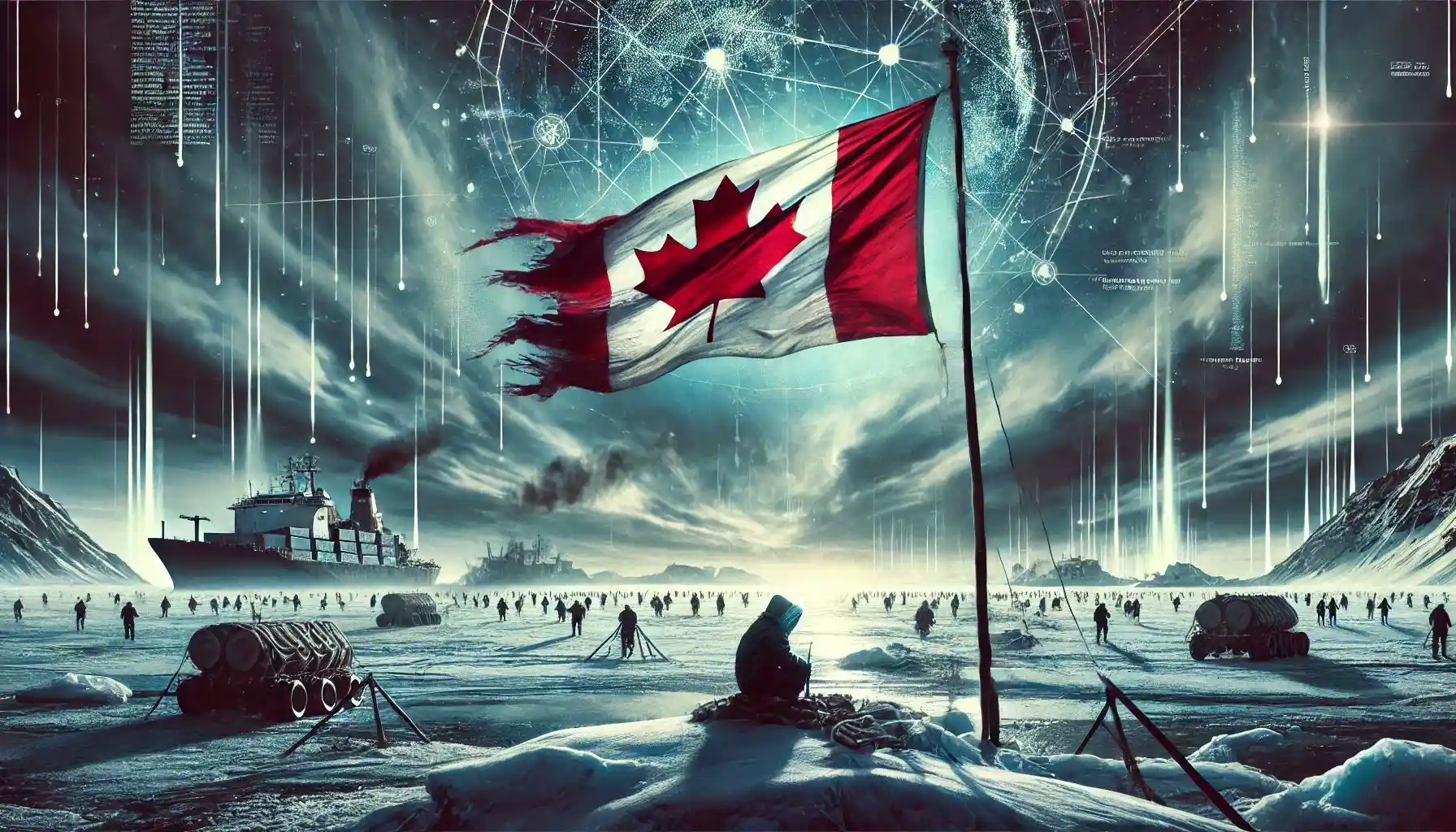


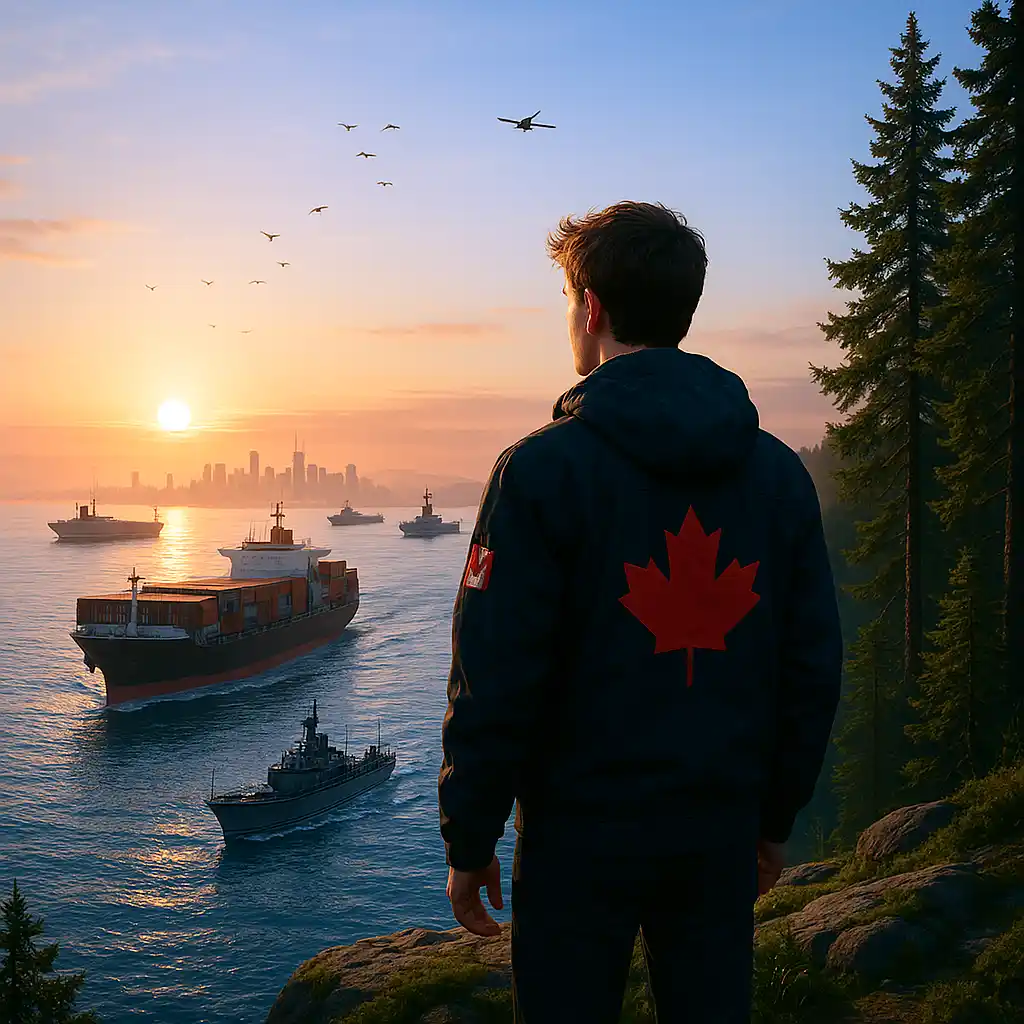

23. Related Content:
Title: “Canadians Are Unaware Of What’s Happening – Jordan Peterson” https://youtu.be/CQOHCsuVBSU?feature=shared
Title: “Anti-Semitism and the Fall of Canada | Terry Glavin | EP 508” https://youtu.be/u0HoFyYhq60?feature=shared
Title: “From Professional Autonomy to Centralized Control: Tracing the Shift in Canadian Environmental Governance” https://skillsgaptrainer.com/professional-autonomy-to-centralized-control/
SGT Military Page: https://skillsgaptrainer.com/category/military-science/
SGT Tech Design Page: https://skillsgaptrainer.com/category/creative-skills-mastering-the-digital-craft/
To see our Donate Page, click https://skillsgaptrainer.com/donate
To see our YouTube Channel, click https://www.youtube.com/@skillsgaptrainer
